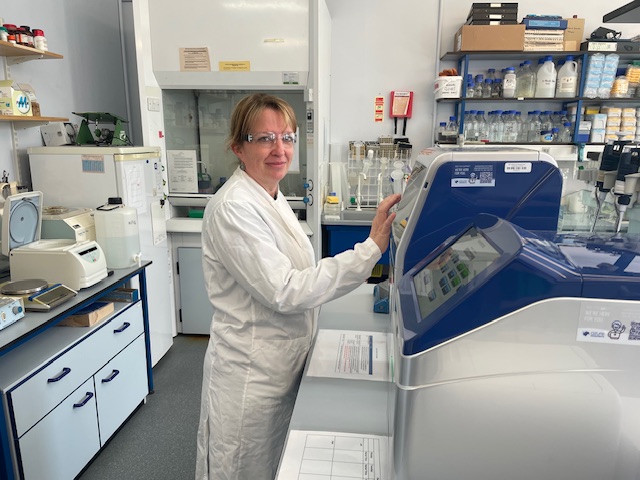
CADDA, in a combined marine, animal and food safety project, is working closely with the Whitstable Oyster Company (WOC) and Southern Water to monitor locally grown oysters destined for the food chain for the presence of norovirus.

Oysters are grown commercially at Whitstable Bay in Kent.
The work, being undertaken by Jo Roobol at the University of Kent, utilises a qPCR-based diagnostic method that allows oyster batches to be tested for the presence of the virus. Results are provided within a 24 hour turnaround time providing reassurance for product release and confidence in product sales.

Before being released for sale, batches are tested by qPCR analysis at the University of Kent for the presence of norovirus.
The resulting diagnostics data are also being used by WOC, Southern Water and the Environmental Protection Agency alongside waste-water release data, rainfall data, and reports of illness within the community to help establish correlations between these, consider waste water management approaches, and as a measure of the health of the marine environment.
